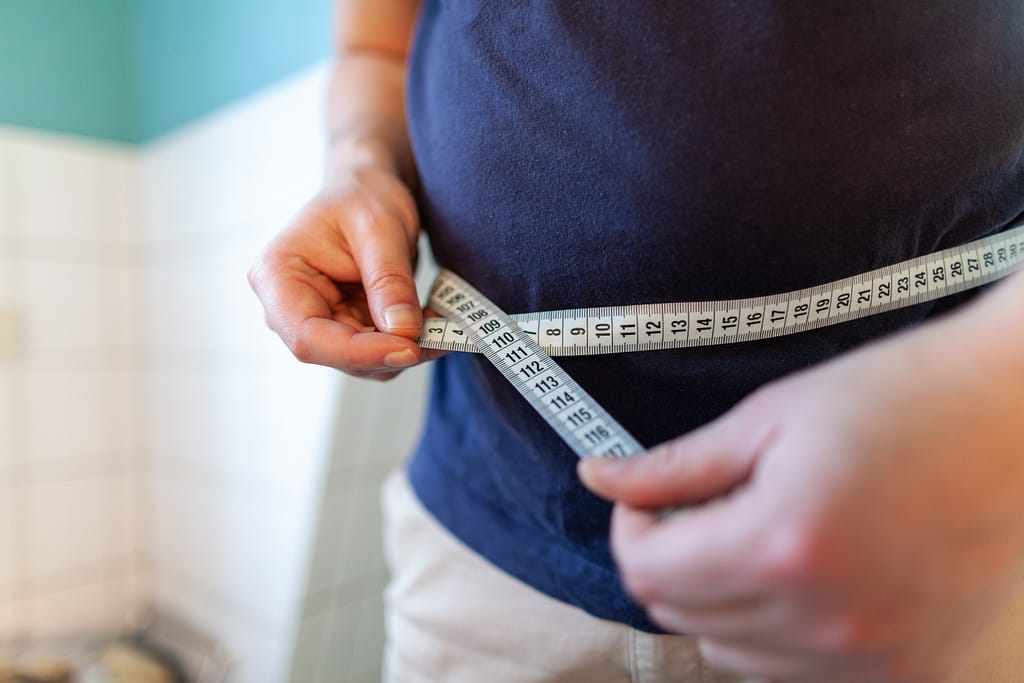
Every person has body fat. Truthfully, everyone needs some level of body fat in order to function! However, having too much body fat puts you at risk for serious health issues. Keeping your body fat at a healthy range can be done by eating a balanced diet, engaging in moderate exercise and also getting enough rest. Should be easy, right? Well, for some people yes, and for some people, no, especially men who suffer from low testosterone.
Men in their 30s and 40s often have a harder time losing weight. As you age, it may not be as easy to drop a few pounds like it was in your 20s. Imagine if you added low testosterone levels to the mix, it makes it that much more difficult to lose weight! Thankfully, there are things that can be done to make this process easier. First, let’s understand a little more about weight gain and low testosterone.
There is a strong correlation between belly fat and low testosterone levels. As men age their testosterone levels begin to decrease and at the same time are likely to gain more belly fat. To make matters worse, belly fat has an enzyme called aromatase, which converts testosterone into estrogen, slowing down the body’s production of testosterone. Less testosterone tends to mean more belly fat. It’s common for men to lose testosterone as they age, however weight gain can accelerate the process. Staying active and eating healthy in conjunction with testosterone replacement therapy can help men avoid the annoying habit of developing the infamous “pot belly” if they currently have low testosterone levels.
According to a recent study, obese men are 8 times more likely to have low testosterone. When men start gaining that extra fat, it’s creating a breeding ground for aromatase to turn testosterone into estrogen, just making the weight gain issue that much worse. Additionally, during this process, oftentimes your body starts being told to slow down that production of testosterone. So, even if you start hitting the gym hard and eating cleaner, your motivation and energy may not be there and it just becomes a vicious cycle that needs to be broken with the help of boosted testosterone.
Of course being overweight or obese does not guarantee you have low testosterone. The only way to truly know is by getting a blood test. Our office sends our patients for an extensive blood panel that helps our doctors see what’s happening from the inside. Here, we are able to check different hormone levels and other important factors that play a role in testosterone production and how your body is currently working. If you are a candidate for testosterone replacement therapy, we will begin a unique program for your specific goals and health status. Typically, results begin to appear within 2-8 weeks. Take note, testosterone replacement is not a cure all for losing weight. Keeping yourself healthy is a big project and that includes changes to your diet, workout regimen and so much more. Once patients begin to feel the effects of their new program, they begin to think much clearer, sleep better (which also helps boost testosterone levels), workout stronger, lose weight/gain muscle easier and even see improvements in the bedroom.
If you think you are a candidate for testosterone replacement therapy, visit our website and take our Low T quiz. If you’d like to get your consultation set up today, call Lisa at 973-998-7770 now!

